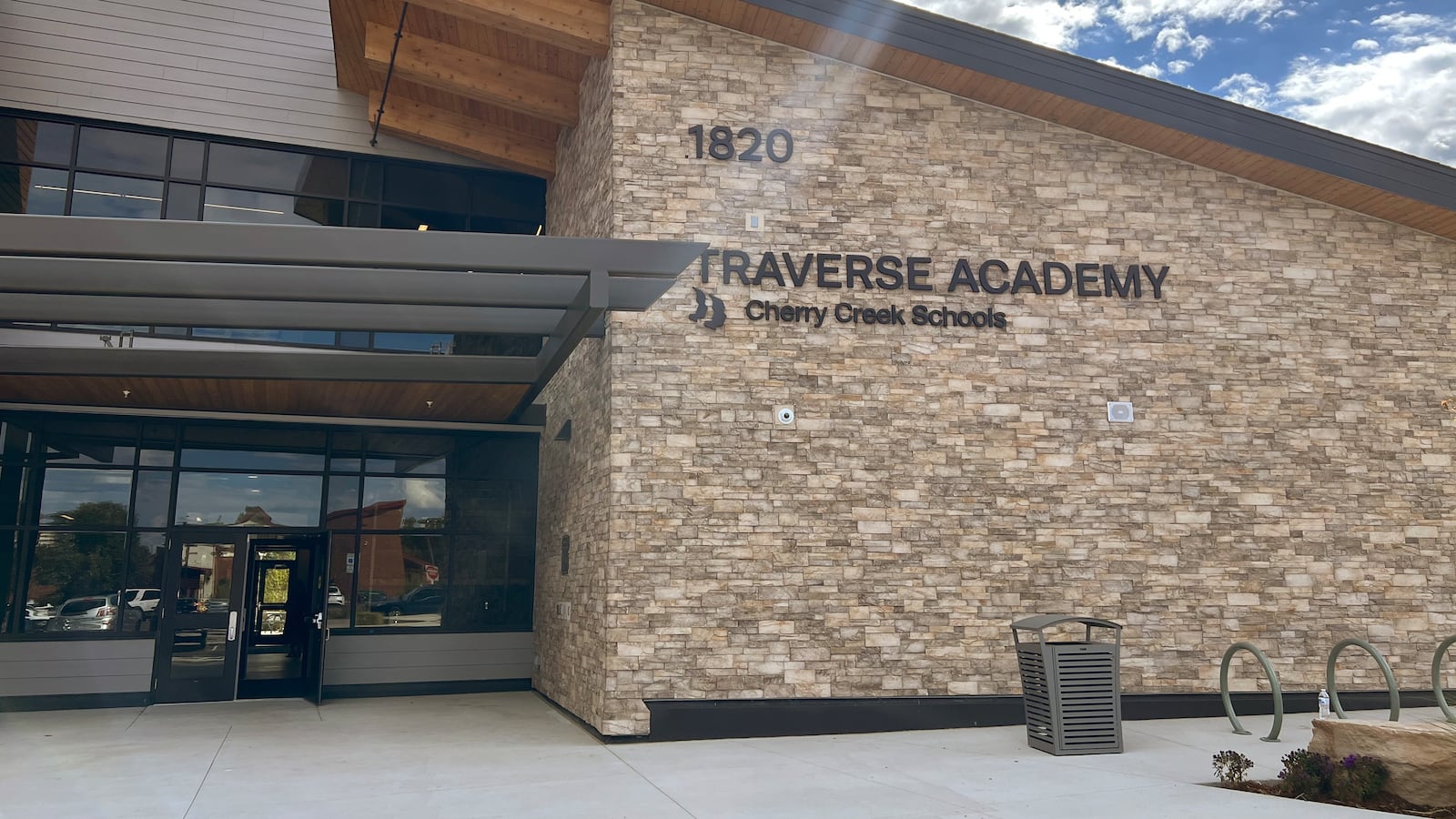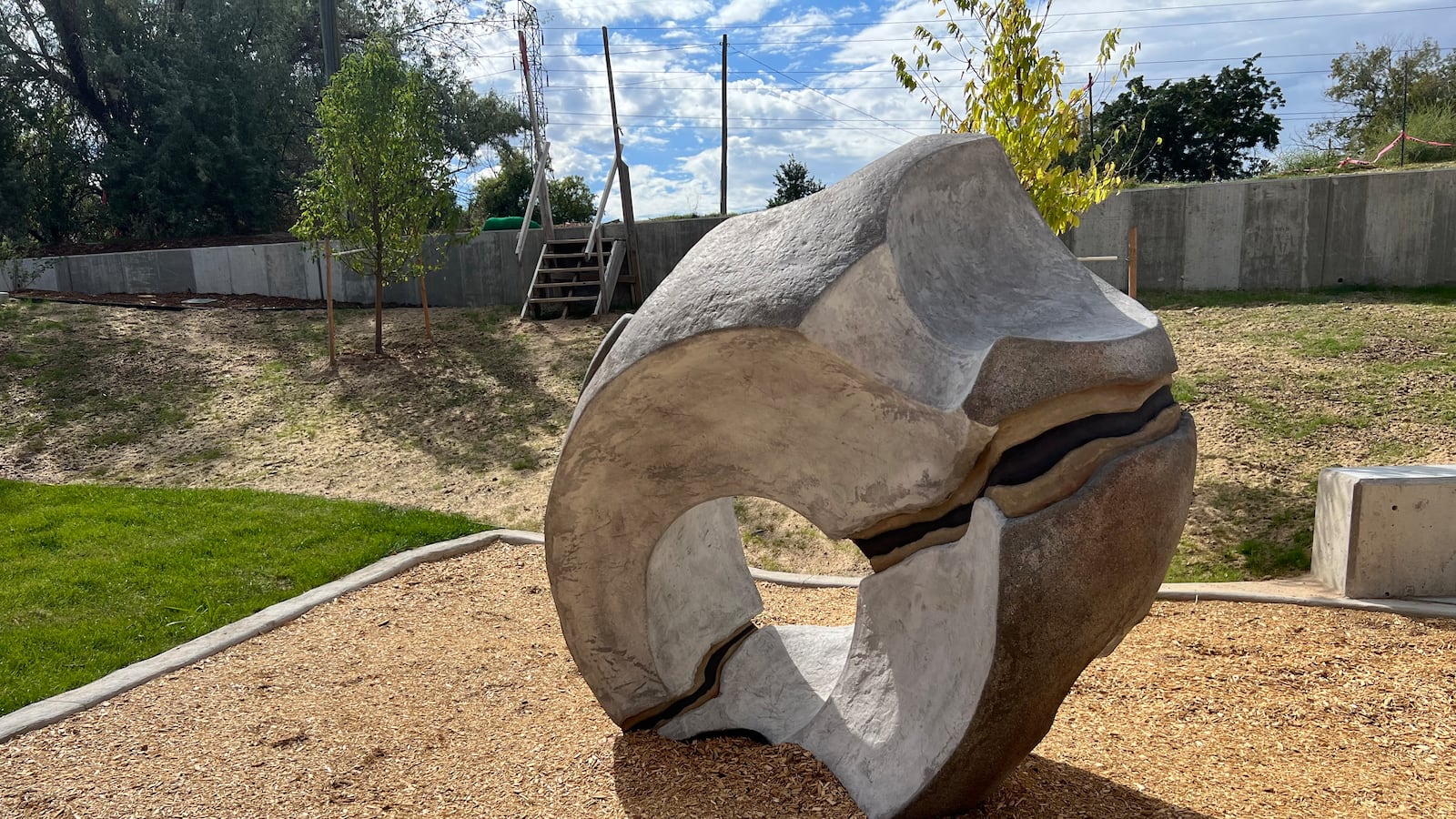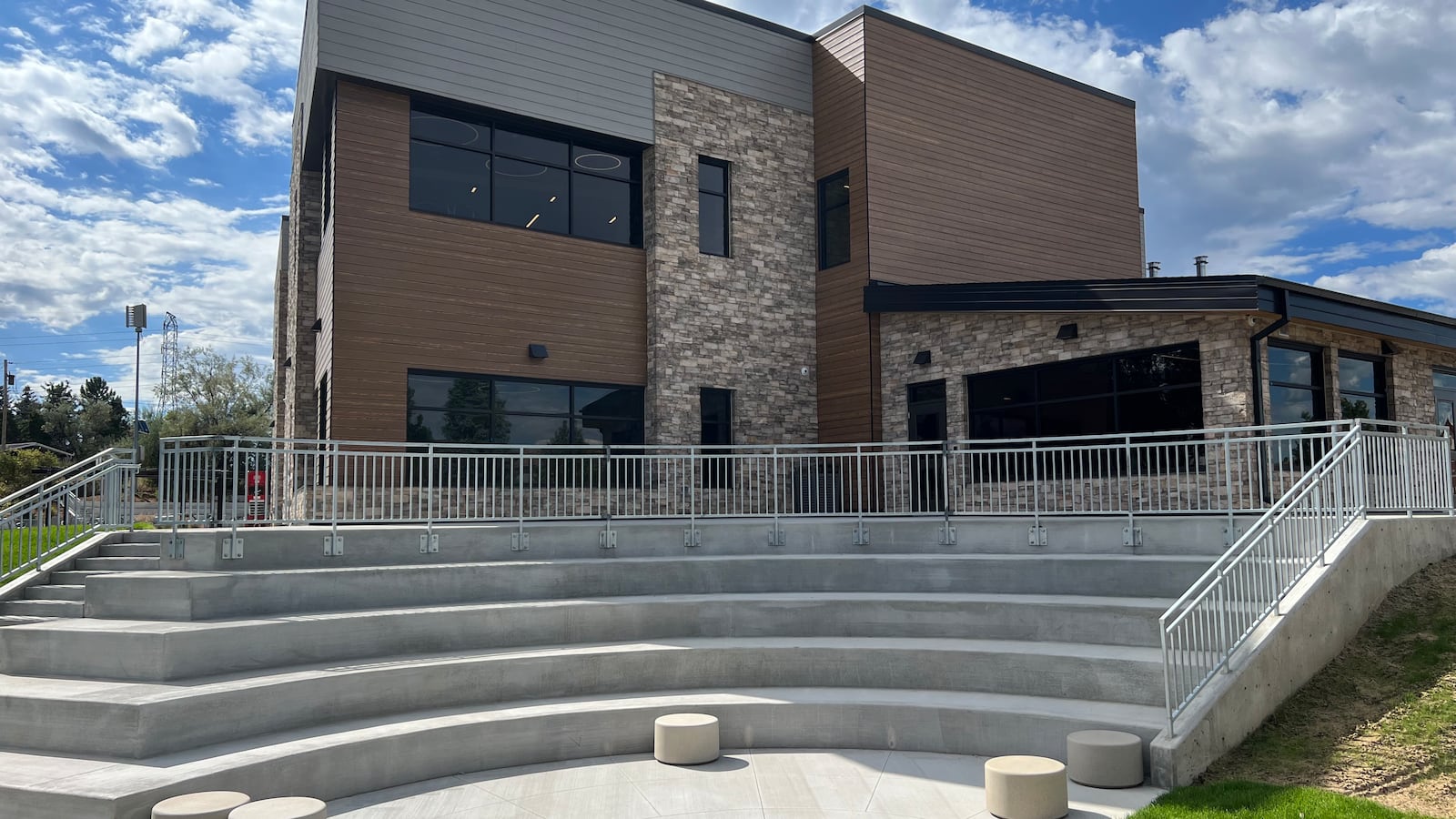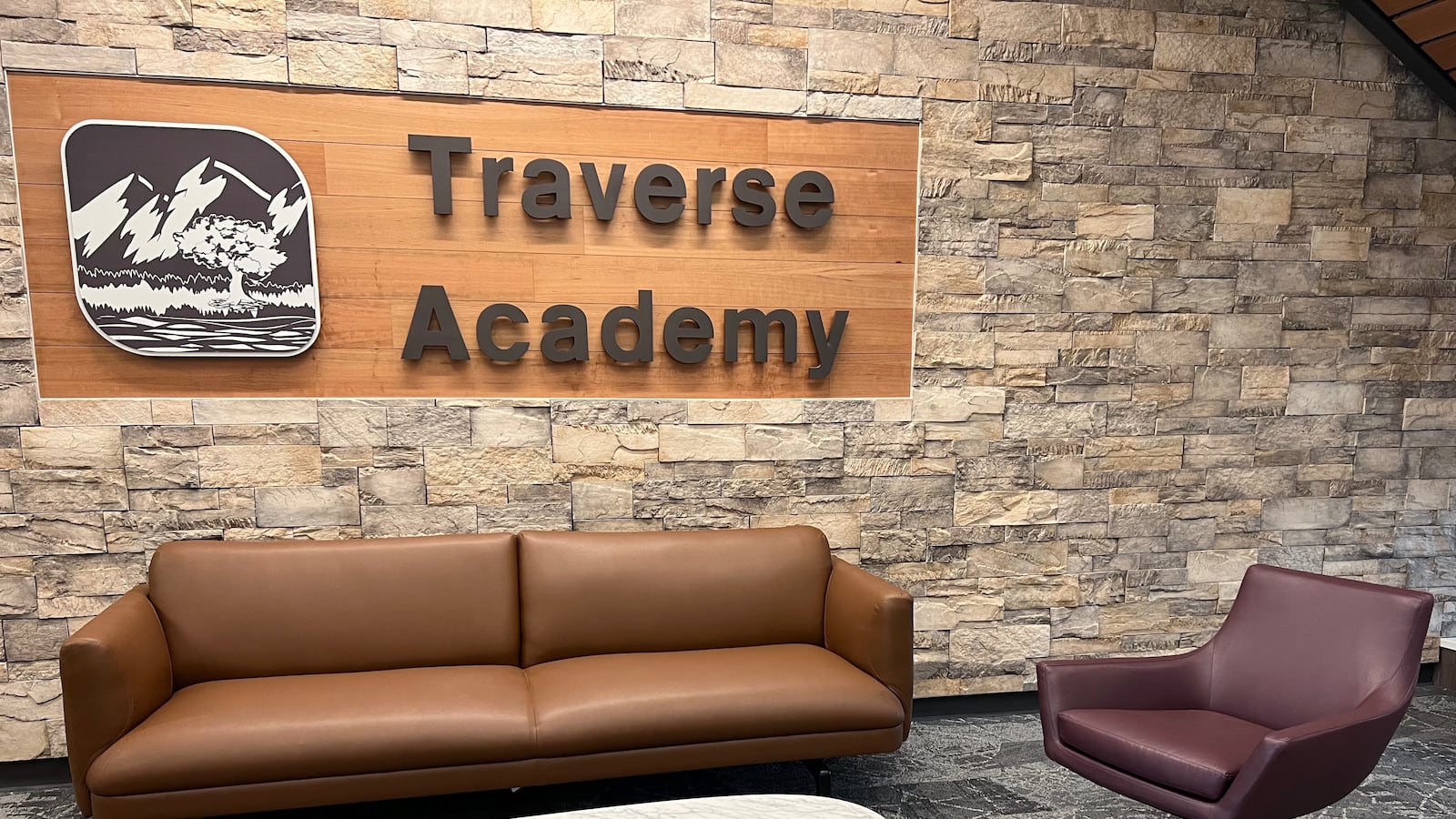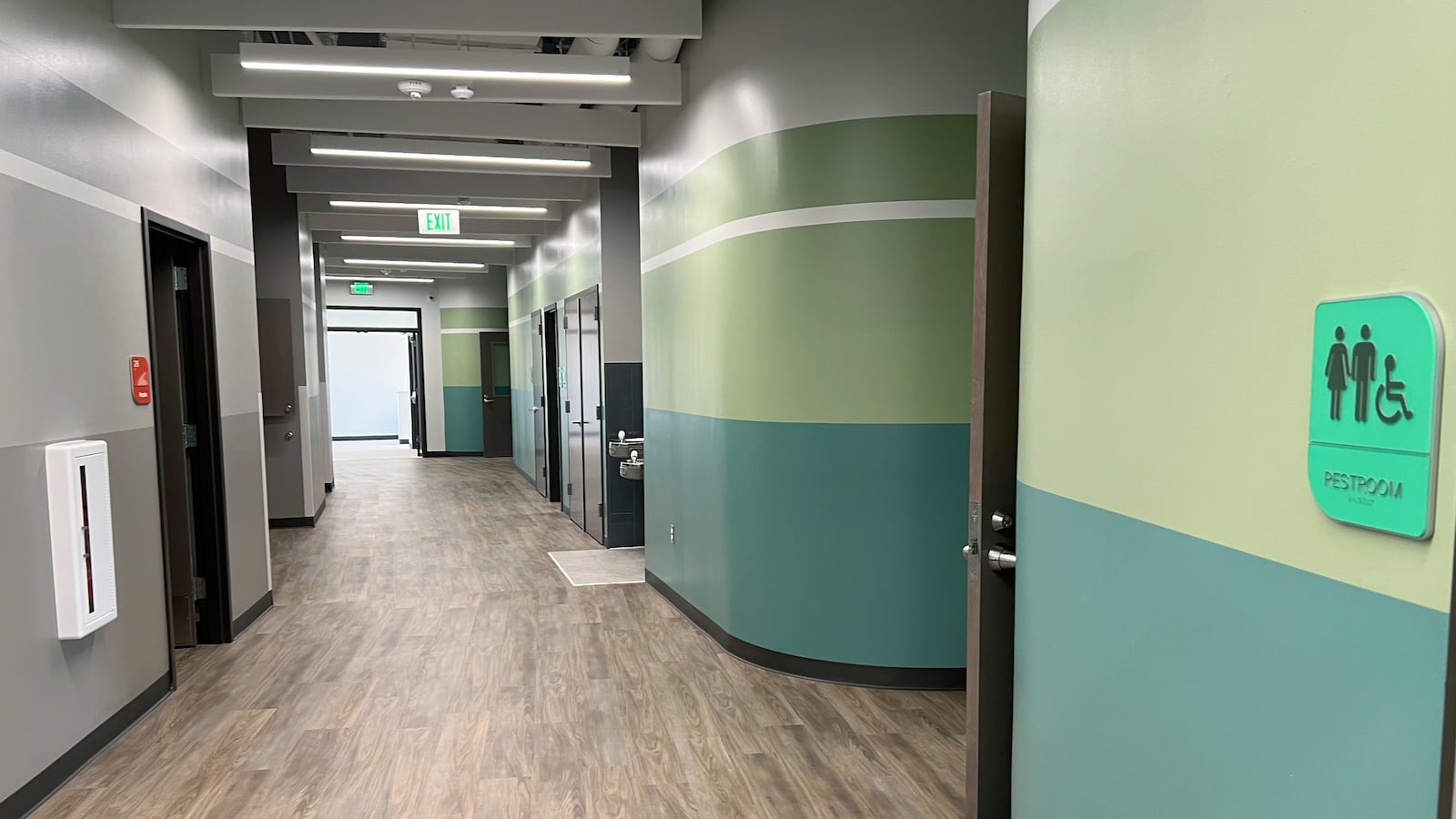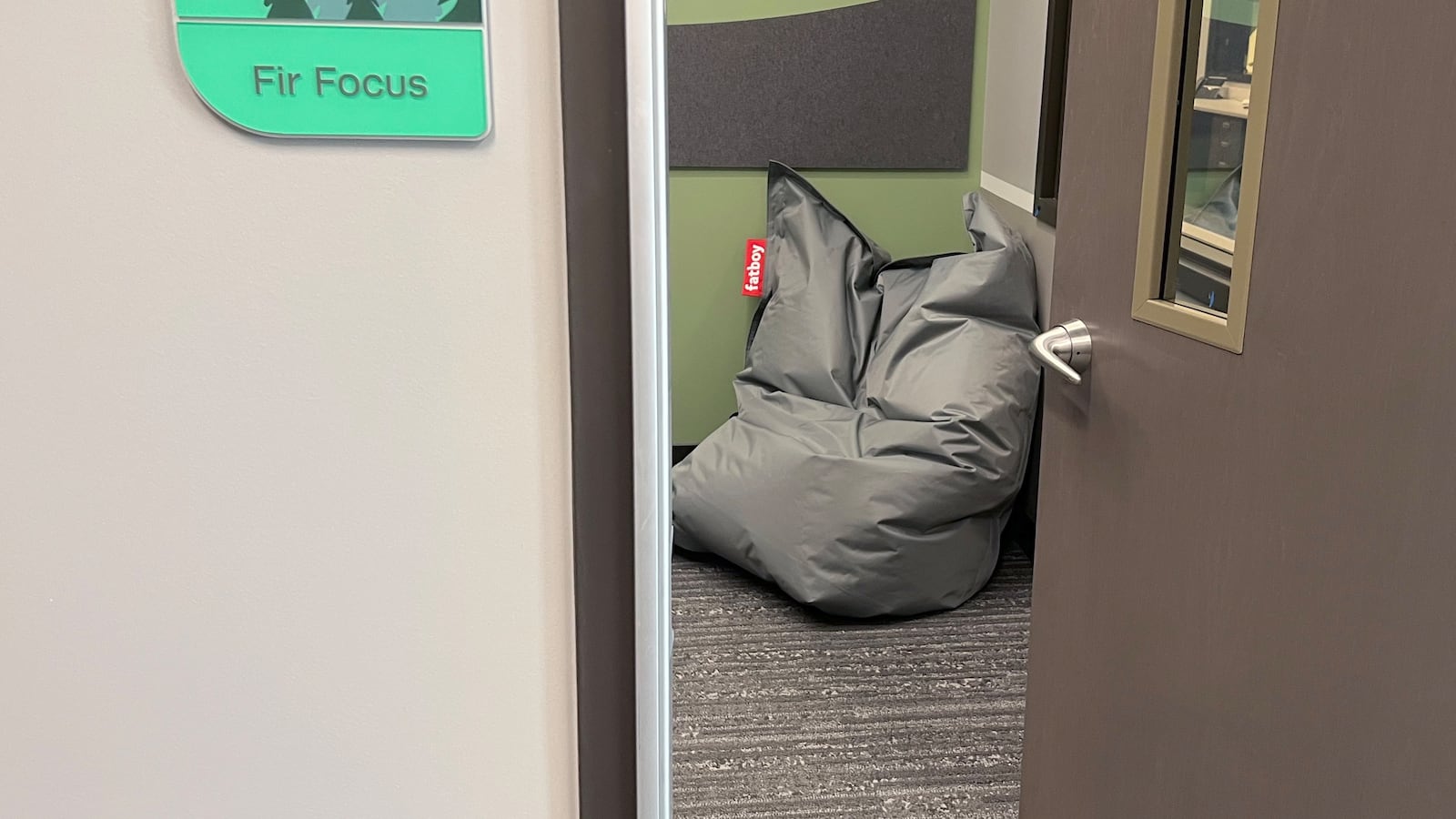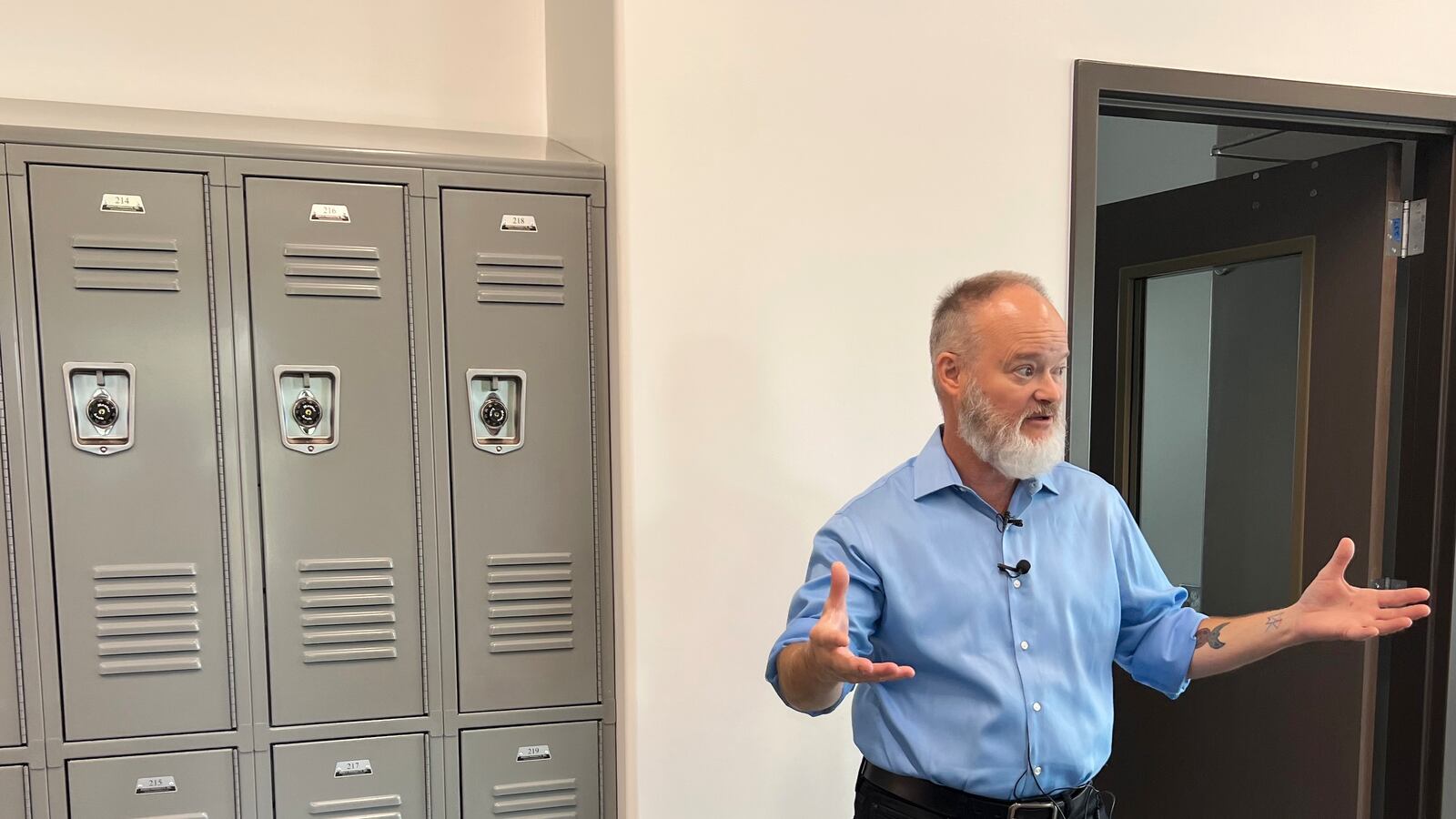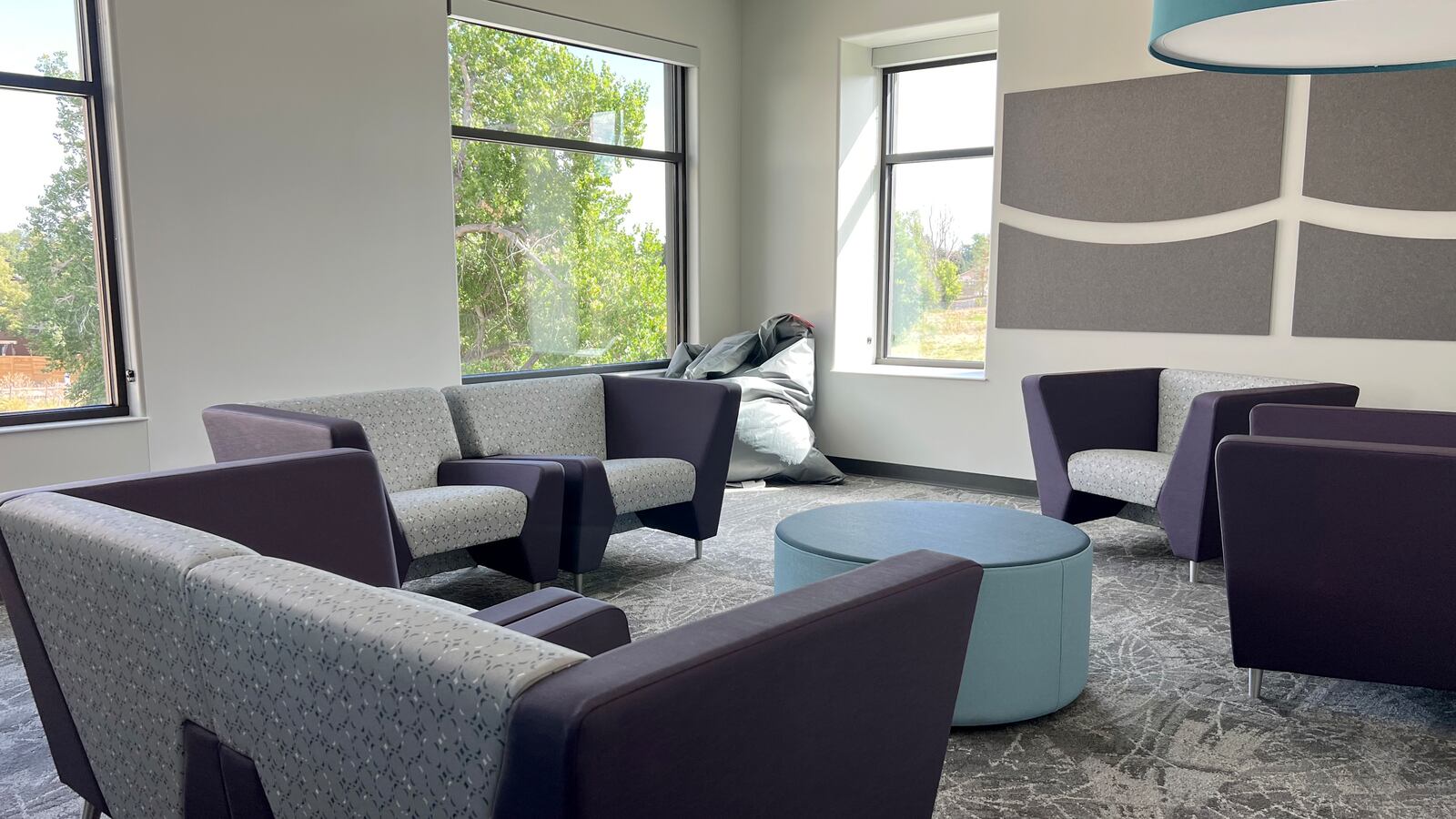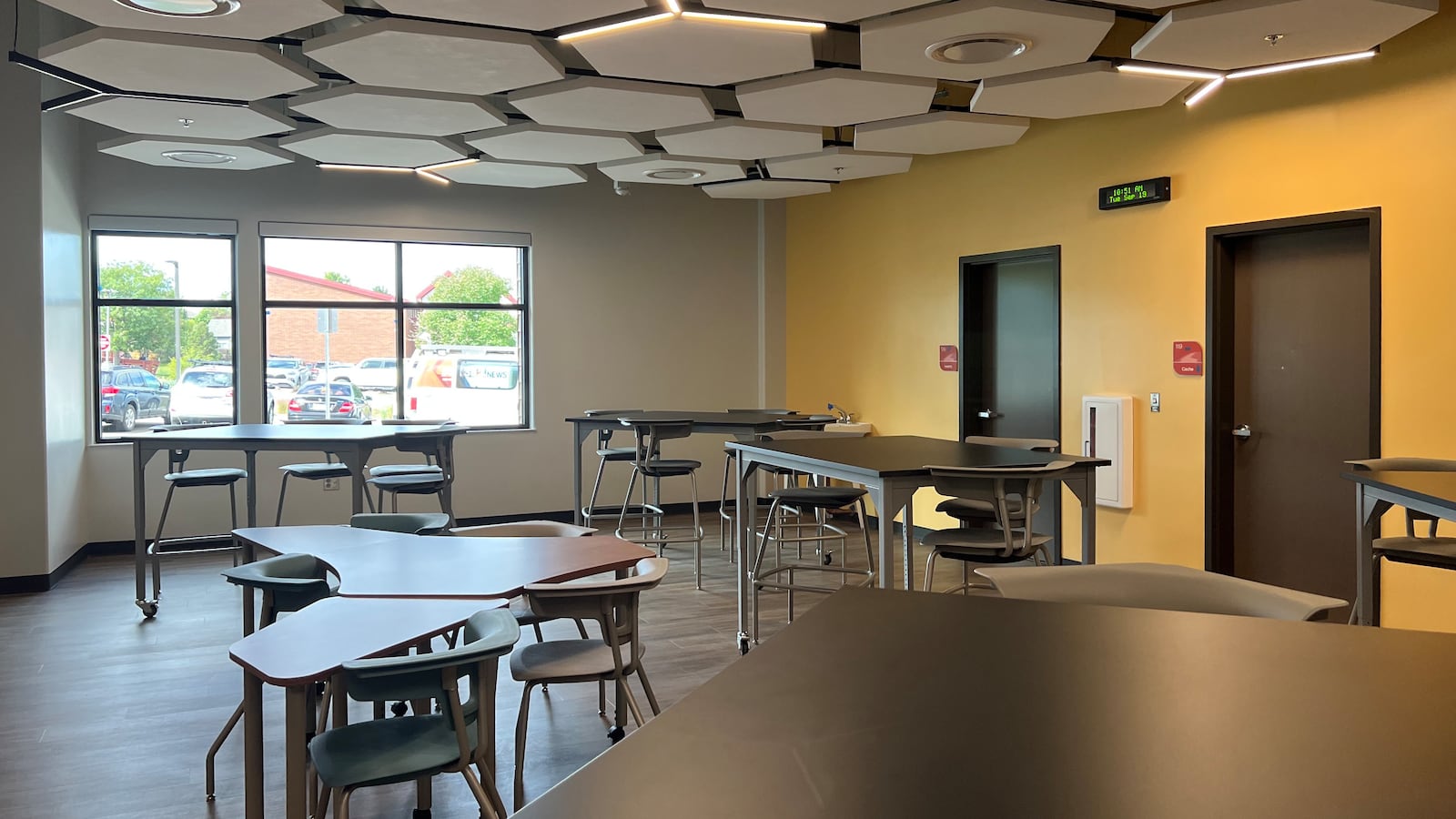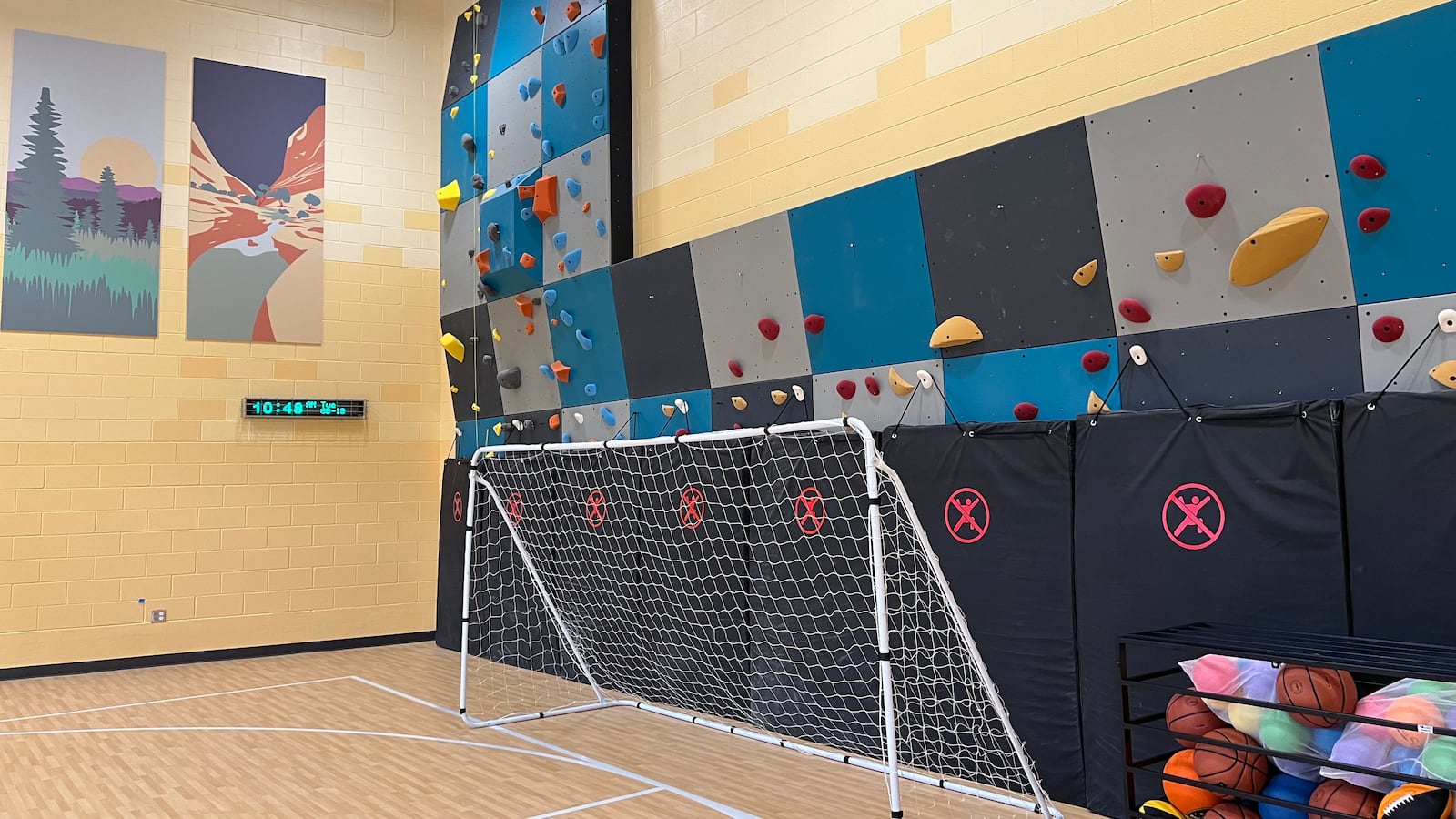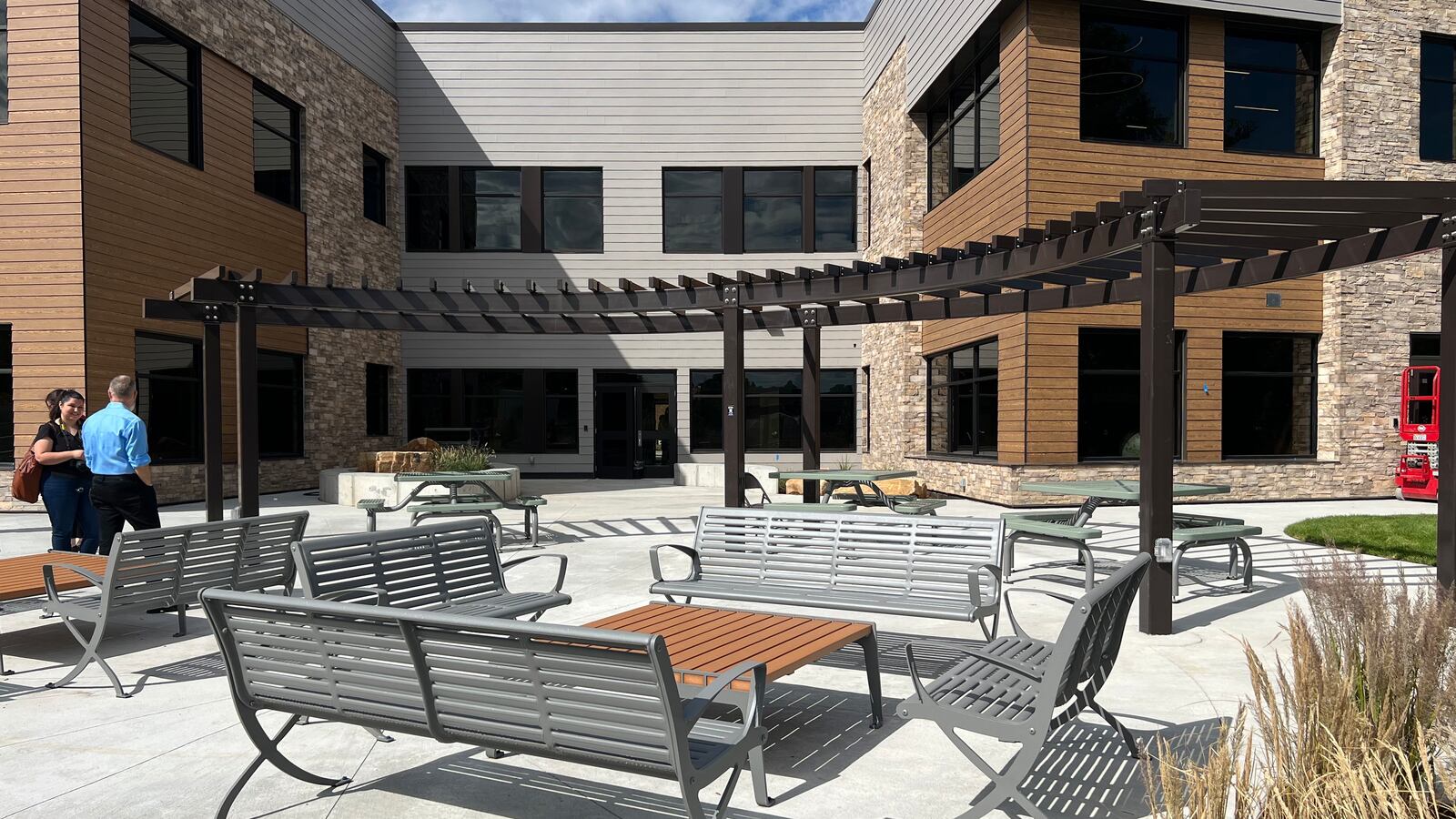Sign up for Chalkbeat Colorado’s free daily newsletter to keep up with education news in Denver and around the state.
Next month, the Cherry Creek School District will open a first-of-its-kind facility — part school, part therapeutic mental health facility — to meet the needs of students in crisis.
The number of facilities in Colorado that serve students with intense mental health or behavioral needs has drastically dwindled over the past 20 years, leaving many children without critical care. The new Traverse Academy is an effort to address that problem.
Once open, it will serve students ages 10 to 18 who have severe behavioral, social, or emotional challenges, or are experiencing serious depression, anxiety, post-traumatic stress syndrome, or suicidal ideation, district officials said.
“This school will save lives,” said Cherry Creek Superintendent Chris Smith.
Officials in the suburban district southeast of Denver gave tours Tuesday of the new building, which was built with $19 million in voter-approved bond funding. It was carefully designed not to feel like a clinic or hospital, said Tony Poole, assistant superintendent of special populations.
But it doesn’t feel like a traditional school, either.
The walls are painted soft greens, blues, and purples, and the corners are rounded. There is a nook under the staircase where students can go if they’re feeling overwhelmed. The windows are oversized, letting in plenty of natural light, with benches underneath where students can sit.
Outside, there are two open-air amphitheater classrooms, a boulder for students to climb, and a painted labyrinth. The main foyer has couches and a coffee bar.
“When we talk about de-institutionalizing mental health, it starts right when you walk through the door and how you feel,” Poole said.
At full capacity, Traverse Academy will serve between 48 and 60 students in grades four through 12. Students will be referred by the social workers or psychologists at their schools, and parents must agree to the placement. Students won’t be at Traverse all year; Poole said a typical stay might be as short as eight weeks or as long as five months.
The facility is split into three pods that Traverse calls “home bases”: one for students with severe needs, another for students with moderate needs, and the third to help prepare students to transition back to their middle or high schools.
The severe and moderate pods have a main classroom with tables for schoolwork, as well as a group therapy room with comfy chairs and beanbags, and two smaller rooms for students to take breaks or receive individual therapy.
Each student will receive nine hours of individual, group, or family therapy per week, which Poole said is nearly the same amount children get in residential treatment facilities.
There are also hidden design features meant to keep students safe. The doors have special hinges that allow them to swing both ways, so students can’t barricade themselves in a room, Poole said, and other features help deter suicide attempts.
The transitional pods look different, with square classrooms, a wall of lockers, and fewer therapy rooms. The idea is that students will advance through the pods, their progress signified by different color schemes, as they reacclimate to a traditional school setting.
“Everything is really programmed, down to the bolts, down to the shapes of the walls, down to the way things are secured, so that we are student-centered,” said Traverse Academy Principal Kimberly Avalos, who started her career as a Cherry Creek teacher and rose to work on special education for the entire district, with a focus on students with emotional disabilities.
“We are investing in them and showing them they are important and matter,” she said.
School psychologist John Smrcka is one of the 30 mental health providers and teachers who will work on the Traverse Academy staff, which will be a mix of Cherry Creek employees and clinical staff from the University of Colorado Department of Psychiatry. Smrcka said he was inspired to apply for the position after realizing how unique Traverse Academy would be.
“Here in a school setting, we’ll be able to provide treatment,” he said. “As a school psychologist in a typical public school, we’re not supposed to do clinical treatment. We’re just going to help the class manage the behavior — but we’re not going to try and address it at a root level.
“Traverse is going to be an opportunity to do some things differently,” Smrcka said.
Former Cherry Creek student Jacob Eggleston will be one of six paraprofessionals at Traverse. Eggleston said he himself struggled with suicide, depression, and anger as a student.
“I want to be a role model and be an example and point them in the right direction,” he said.
Traverse Academy is not set to open until Oct. 23, but Poole said there are already 30 students on a waiting list. Those 30 students haven’t been able to get into the dwindling number of privately run facility schools around the state, and so have been waiting in hospitals or at home.
“This can’t open soon enough,” Poole said.
Melanie Asmar is a senior reporter for Chalkbeat Colorado, covering Denver Public Schools. Contact Melanie at masmar@chalkbeat.org.

